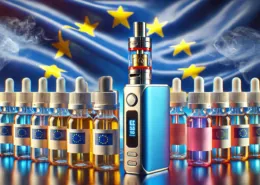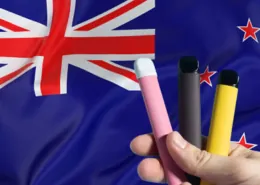France Announces Plan to Ban Disposable Vapes
France recently announced plans to ban disposable vapes, known locally as “puffs”, as part of a wider initiative to reduce smoking rates. This has sparked discussion around disposables and their impacts. In this article, we’ll explore the proposed ban, disposable vape concerns, and potential effects.
Understanding Disposable Vapes
Disposable vapes like the Puff Bar and Elf Bar have soared in popularity worldwide for their convenience. These compact, inexpensive devices come pre-filled with nicotine e-liquid. Users simply open the package and vape until the battery or fluid runs out.
While disposables are designed for adult smokers, sleek designs and sweet flavors raise worries about youth appeal. Disposables also produce plastic waste and have been linked to increased smoking risk.
France’s Plan to Ban Disposable Vapes
Citing teen usage concerns, France aims to prohibit disposable vape sales nationally. Prime Minister Elisabeth Borne stated disposables are “giving bad habits to young people” and are a “gateway” to smoking.
The proposed ban is part of a larger anti-smoking initiative seeking to reduce France’s 75,000 annual smoking-related deaths. It follows partial bans in EU countries like Belgium and Germany.
However, the ban faces legislative challenges requiring cooperation across party lines. Some public health experts also debate whether banning vapes effectively reduces youth smoking.
Potential Impacts of a French Ban
If passed, France’s law could influence EU regulation and spur bans across Europe. It may:
- Reduce teen vaping and block an entry point to smoking
- Push adult vapers towards reusable devices with less waste
- Fuel growth of illicit disposable sales without proper oversight
- Deprive adult smokers of a potentially reduced harm option
A ban could discourage youth vaping, but also risk shifting legal adult users to an unregulated black market with unknown safety standards.
Other Regulations Beyond Bans
Rather than outright bans, some advocates propose balanced regulation maximizing benefits while mitigating harms:
- Limiting flavors to tobacco and menthol to discourage teen adoption
- Restricting marketing and imposing plain packaging laws
- Enforcing age verification online and in stores
- Capping nicotine levels in vape fluids
- Taxing vapes proportionately to smoking risk reduction
This regulatory approach allows adult access while discouraging youth uptake. It also generates tax revenue for enforcement and education.
The Complex Choice Facing Policymakers
Disposable vape regulations present difficult tradeoffs for lawmakers seeking to balance public health interests. Outright bans may play an important role. But thoughtful regulation may better serve all stakeholders through compromise.
The debate around disposables will likely continue as more evidence emerges. But France’s bold proposal signals a new phase in addressing concerns through legislation rather than just rhetoric.
- Austria Plans to Ban Disposable E-Cigarettes - August 5, 2025
- Vaping vs. THC Drinks: Which Cannabis Option Is Right for You? - August 4, 2025
- Colombia’s New Vape Law: A Reality Check on Enforcement - August 4, 2025








